Oct 28, 2025 10:47 AM
In Memoriam: Jack DeJohnette, 1942–2025
Jack DeJohnette, a bold and resourceful drummer and NEA Jazz Master who forged a unique vocabulary on the kit over his…
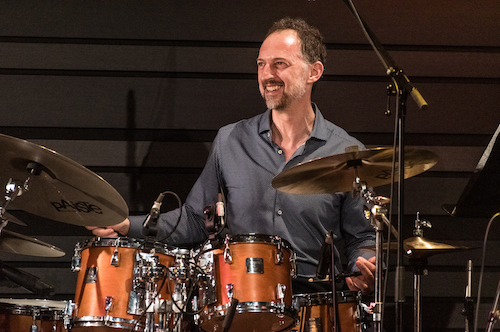
Mark Walker’s new leader album is titled You Get What You Give.
(Photo: Koichi Morishima)One reason that reedist Paquito D’Rivera likes playing with Mark Walker is that the Grammy-winning drummer “doesn’t play too loud.”
D’Rivera said this with a laugh, but he’s deeply serious about his appreciation of the rhythmic refinement that Walker has brought to their 30 years of collaboration. “Many musicians, especially drummers, lose their energy when you ask them to play soft,” he explained. “Mark can play with the same energy without raising the volume. That’s really hard to find.”
In April, Walker released You Get What You Give (Fliposphere), serving as leader for the first time in his decades-long career; D’Rivera adds clarinet to two tracks. “I just felt that it was time to get my own stuff out there—because Oregon is not touring anymore and Paquito is doing more guest-artist work and using [his regular players] less often,” Walker said.
Walker joined the jazz-meets-world-music band Oregon in 1996, and the following year, the drummer contributed to Northwest Passage. Oregon founder Ralph Towner was so taken with Walker’s playing on the album that he asked him to become a member of the ensemble.
At the time, Walker had just started to compose his own material, and the band proved to be a good setting to develop his burgeoning compositional skills. “Ralph has got such a great knowledge of music,” Walker said. “If there’s anything trite about a composition, he’ll flat-out reject it. I call it the ‘Ralph test.’”
Several of Walker’s tunes passed that test, among them the high-octane “Deep Six,” which appeared on the Oregon album 1000 Kilometers in 2007 and earned Walker a Grammy nomination for Best Instrumental Composition in 2008. That same year, he won a Grammy as part of D’Rivera’s quintet on Funk Tango (Sunnyside), in the category Best Latin Jazz Album.
By then, Walker had been playing Latin music for about 20 years and had become a first-call drummer for D’Rivera. But back in the late 1980s, when Walker had just started playing with prominent Latin musicians, the learning curve was steep. “I was thrown into this world of Afro-Cuban rhythms and didn’t really know any of them,” Walker admitted. “I learned a lot of them from nonpercussionists and worked with a lot of musicians from different places. So, it’s been a crash course in Afro-Latin rhythms over the last 30 years.”
These two disparate influences—Oregon’s jazz/world fusion and D’Rivera’s intense Latin drive—meet up on the new album. “When I wrote these tunes, you could say that I had a foot in each of these two different worlds,” Walker said. “I was trying to combine them, and I wanted the groove to be really strong.”
To pull this off, Walker used two discrete bands with “a really hopping rhythm section,” both recorded at Berklee College of Music, but 12 years apart. The first band, from a 2007 session, features players from another of Walker’s early gigs—the Caribbean Jazz Project—and reflects his first successes as a composer. This group turned out a rendition of “Deep Six” with a stronger bite and a softer swing than the Oregon version, and Walker’s original “What About That,” from Funk Tango, which shows off his mastery of Latin grooves and a sweet melodicism that D’Rivera accentuates during solos.
The second band, recorded earlier this year, expressed Walker’s more straightahead bebop side—a ferocious take on John Coltrane’s “Moment’s Notice,” for instance, and Walker’s own seductively lilting “Andalusian Sunrise.” The swing sections interspersed throughout the new album and the intricate jazz harmonies over which the soloists improvise are telling: They ground the album resolutely in Walker’s persona as a jazz musician. “I go back to my roots,” he asserted. “I gravitated toward jazz in my teens and I never really left.”
Walker’s next project will explore yet another aspect of his jazz persona—a big band album that recalls his time behind the kit for some excellent European large ensembles. But the first chart, already recorded, indicates anything but a reversal. He wrote the tune, “Walk The Walk,” for Oregon, and he’s thinking about using Latin feels throughout the album, maybe adding steel drums.
Looking forward, the bandleader anticipates a positive experience working with a jazz orchestra again. “A drummer in a big band is always happy,” he said. “It’s like driving a big bus.” DB
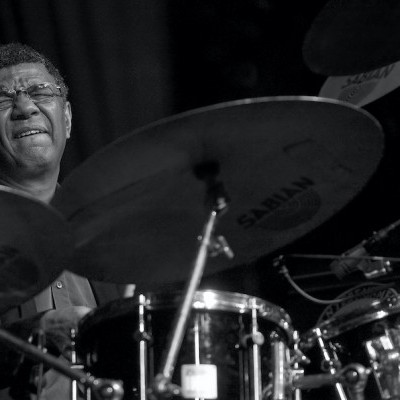
Jack DeJohnette boasted a musical resume that was as long as it was fearsome.
Oct 28, 2025 10:47 AM
Jack DeJohnette, a bold and resourceful drummer and NEA Jazz Master who forged a unique vocabulary on the kit over his…
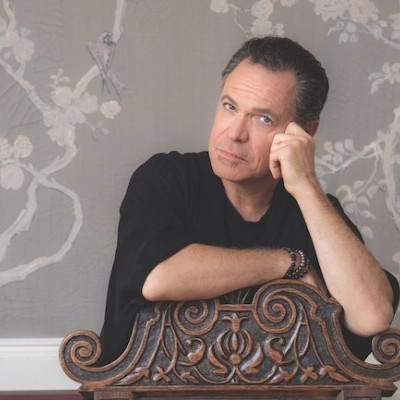
“Think of all the creative people I’m going to meet and a whole other way of thinking about music and a challenge of singing completely different material than I would have sung otherwise to my highest level in dedication to the moment,” Elling says about his Broadway run.
Sep 9, 2025 1:18 PM
Kurt Elling was back at home in Chicago, grabbing some family time in a late-June window between gigs. Sporting a smile…
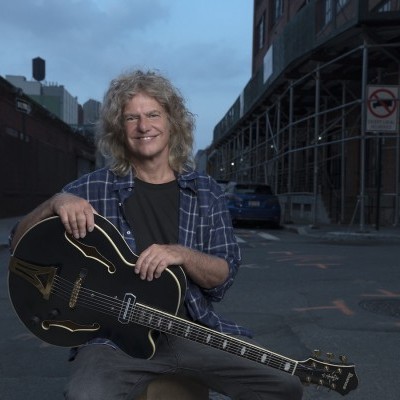
Pat Metheny will perform with his Side-Eye III ensemble at Big Ears 2026 in Knoxville, Tennessee, next March.
Sep 9, 2025 12:19 PM
Big Ears has announced the lineup for its 2026 festival, which will take place March 26–29 and include 250…
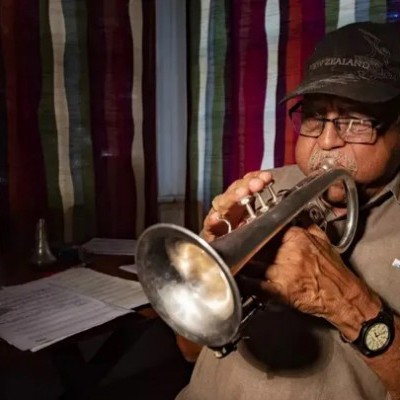
“[That’s] the thing of the beboppers,” Bradford said. “These guys were important for not only playing that wonderful music, but they knew a sort of social stance, you see?”
Sep 9, 2025 1:07 PM
It was a calm, balmy, near-perfect evening in Westwood, California, not far from UCLA, in the expansive courtyard at…

Esperanza Spalding closed an audacious Chicago Jazz Festival set with “Endangered Species.”
Sep 9, 2025 11:50 AM
The 45th Chicago Jazz Festival kicked off its headline events with two erudite individuals, Esperanza Spalding and…